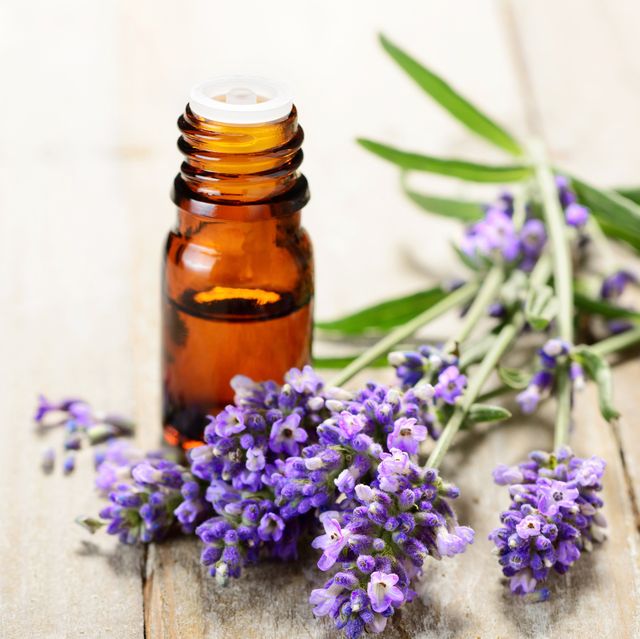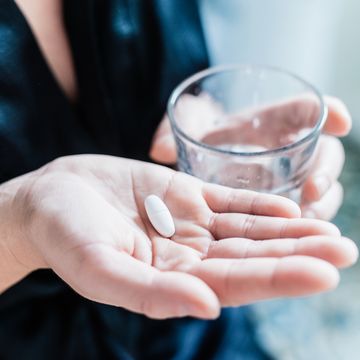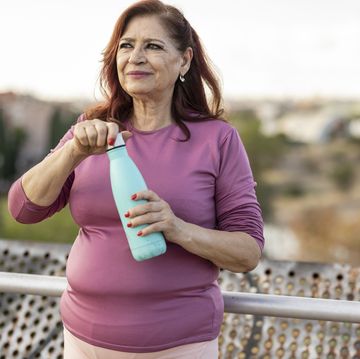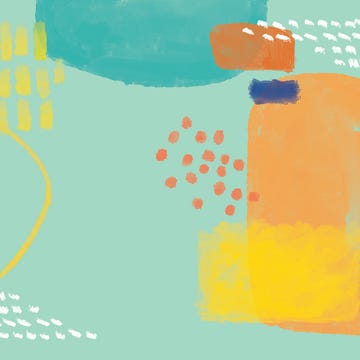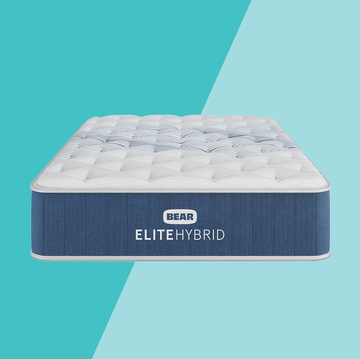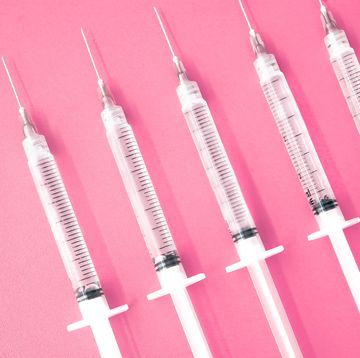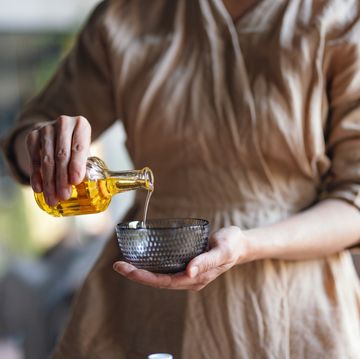When a lice infestation strikes, you’ll do anything and everything to get rid of the blood-sucking critters ASAP. Ditto when it comes to protecting your family if you hear of lice cases happening near you.
The Centers for Disease Control and Prevention (CDC) generally recommends treating head lice with OTC or prescribed medications, but some people get nervous about using chemicals and prefer to go the more natural route. One popular method? Treating the scalp and hair with essential oils in an effort to banish the problem.
But while the internet is packed with claims that certain essential oils will get rid of an infestation and even prevent lice from taking over, it can be hard to know what to believe—so we went to the experts. Here, doctors explain if essential oils are a safe and reliable way to get rid of lice, and what to keep in mind if you are determined to try the method.
Yes, some research has shown promise in using essential oils for lice—but the studies have been small.
There isn’t a lot of data to say whether essential oils are a good way to take down lice, says Jamie Alan, Pharm.D., Ph.D., an assistant professor of pharmacology and toxicology at Michigan State University. “There are some small studies which suggest that certain essential oils are equivalent to traditional medications for lice,” she says, citing permethrin, a popular insecticide, as an example.
One study published in the journal Parasitol Research looked at the effectiveness of tea tree oil and nerolidol (an alcohol found in the essential oils of several plants) on 69 head lice and 187 nits (lice eggs) collected from school children. The tea tree oil killed 100% of the lice in 30 minutes when it was used at 1% concentration. Nerolidol killed 50% of the eggs within four days.
Another study published in BMC Dermatology used three different products, including one that contained tea tree oil and lavender oil, to treat 123 children with head lice. On the last day of treatment, almost all of the children treated with the essential oils combination were lice-free. The same was true for those that were given a product to suffocate the lice. However, only a quarter of kids who were given a product that used pyrethrins and piperonyl butoxide (common ingredients in pesticide-based lice shampoos) were free of lice.
More studies needs to be done before companies can claim that essential oils in lice products are effective.
Even though these smaller studies have led to interesting results, Alan points out that the evidence in using essential oils as a lice treatment still isn’t that strong, as the sample sizes have been small and the most promising research isn’t very recent.
In fact, the Federal Trade Commission (FTC) cracked down on one company in 2014 after it claimed certain products, which were infused with citronella and other essential oils, could “dramatically reduce” the risk of head lice infestations. The FTC eventually negotiated a settlement with the makers of Lice Shield, as it had “not been scientifically proven to shield anyone from infestations.”
And for doctors who see cases of lice all the time in their practice, essential oils haven’t been a reliable method in clearing the problem, according to Robert C. Hamilton, M.D., a pediatrician at Providence Saint John’s Health Center in Santa Monica, CA. His simple take: “They don’t work that well.”
Using essential oils for lice infestations can also have some downsides.
Keep in mind that essential oils are incredibly potent, so using them directly on the skin can pose some problems, says Patricia Garcia, M.D., a pediatrician at Connecticut Children’s. First, they’re not regulated by the Food and Drug Administration (FDA) “so different oils or the same oil from different companies could have completely different components,” she says.
Because of these factors, essential oils can also be irritating. “A child’s scalp is already irritated from the lice and from itching, so the oils can make this worse,” Dr. Garcia says.
Okay, but can essential oils help prevent a lice infestation?
Unfortunately, there isn’t a lot of data to support this either. That said, an older study published in the International Journal of Dermatology had some surprising findings when it came to essential oils and preventing lice. For the study, researchers compared tea tree oil, lavender oil, peppermint oil, and DEET. The researchers found that tea tree and peppermint oil repelled lice the most, and a tea tree and lavender combination kept some lice from biting people with treated skin. Overall, tea tree oil was the most effective, followed by DEET, coconut, and a botanical mixture.
There’s a huge caveat here, though: In their conclusion, the researchers said that neither DEET nor any of the other products were effective enough for them to recommend to prevent lice.
That’s why avoidance is really key in preventing lice, Dr. Garcia says. “Nothing can prevent a lice infestation, other than treating anyone with active lice, avoiding direct head-to-head contact, and avoiding sharing headgear and pillowcases,” she says.
And if you or someone in your family ends up getting lice, Dr. Garcia stresses that it’s important to know that it has no indication of hygiene. “There is no relation to cleanliness,” she says.
Bottom line: You may have luck using essential oils to get rid of lice, but experts say proven methods, like OTC medications, will lead to more success.
If you really prefer starting with essential oils first, though, Alan points out that these substances should only be used topically and never ingested. Tea tree “can be used in combination with other oils like lavender,” she says, and be sure to pair the treatment with a good, fine-tooth nit combing.
No luck after after a day or so? Check out our expert-approved guide on how to get rid of lice to end the scratching for good.
Like what you just read? You’ll love our magazine! Go here to subscribe. Don’t miss a thing by downloading Apple News here and following Prevention. Oh, and we’re on Instagram too.
